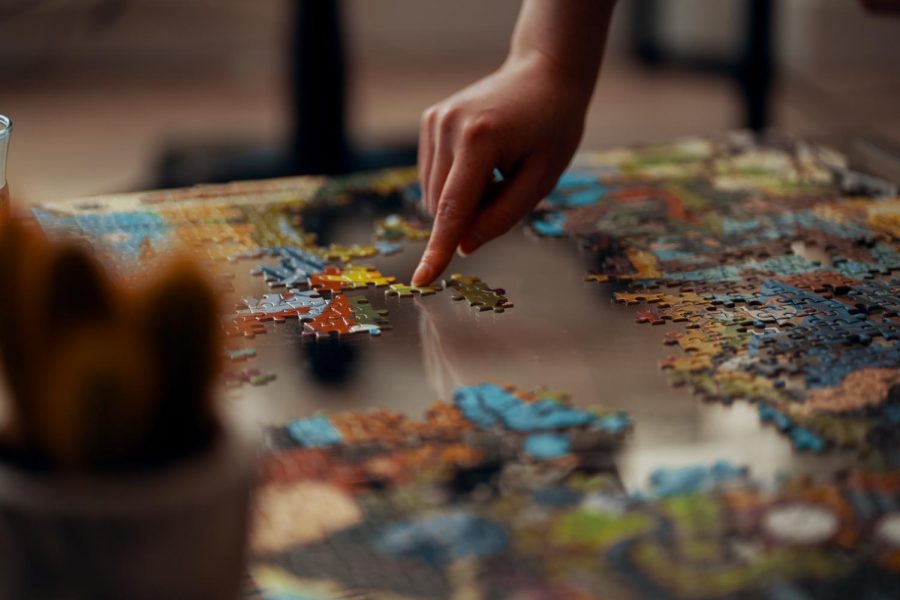Puzzles that help
Isolation can be rough, we can all agree with that. Although, isolation is not so bad once you figure out what to do with your time. In fact, the best thing you can do right now is a puzzle, especially because anyone can do them.
For starters, puzzles are extremely helpful cognitively since they can help improve short term memory. USA Today, explains why puzzles improve memory skills, in their blog “The Surprising Benefits of Puzzle Solving for Adults.”
In the article, they explain that “Solving puzzles helps reinforce existing connections between our brain cells. It also increases the generation of new relationships. This, in turn, improves mental speed and thought processes.” This shows that looking for certain shapes or colors in the puzzle can help improve memory. Your brain must remember the pieces, so that you can come back to them later, or even find a spot for that piece you were looking at earlier.
Jigsaw puzzles are especially helpful for our short term memory because we must remember the shapes and colors of certain pieces to find them and put them in the correct spots. However, memory is just one of the many benefits that come along with solving jigsaw puzzles. Another benefit that arises from solving jigsaw puzzles is better problem-solving skills.
USA Today also explains that “puzzles require us to take different approaches to try and solve a problem since there’s a lot of trial and error involved. We also learn the value of formulating theories, testing hypotheses, and changing our perspectives when something doesn’t work out according to plan.” This is not just important for solving puzzles, but also important for the workforce, as many jobs and situations require problem-solving skills.
This shows how important puzzles are during this time when we are stuck at home not doing much. They are so important for developing skills you will need in the workforce and apply to so many real-life situations. Everyone should be working on a puzzle during isolation without a doubt.
Kerrie Dallman, a teacher at A-West, is spending some of her time in isolation solving puzzles. She explains why she thinks puzzles help.
She agrees that “puzzles can help people hone their skills with recognizing patterns and with visual-spatial analysis. Jigsaw puzzles help you pay attention to detail which is good in any profession and I think it helps keep your brain sharp in terms of improving short term memory.”
Dallman also recognizes that the struggle a person encounters during a puzzle is important. “The struggle and frustration that comes with putting together a complicated jigsaw puzzle 1,000 + pieces is really a lesson on perseverance. We will encounter lots of things in our lives that are super hard, we can give up or we can persevere and achieve success. Yes, success may take a while to achieve but that just makes it that much better when you achieve your goal.”
Puzzles have many mental health benefits, with a list that could go on for a while. The benefits puzzles have aren’t just important for solving more puzzles, but they are also important for solving real-life situations. So if you’re stuck at home and bored out of your mind, try a puzzle. Even if it doesn’t sound fun, once you get started, it might be hard to stop.

Tsavo Cole is an incoming freshmen who likes to hangout with friends and play ice hockey. He enjoys talking to people and learning more about what they...



